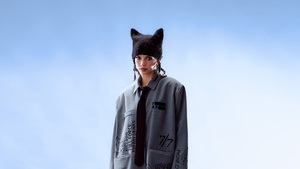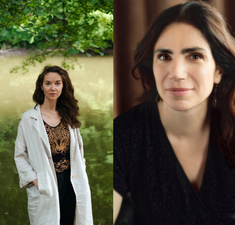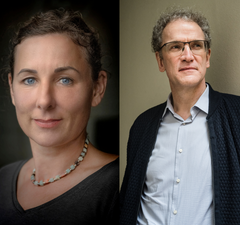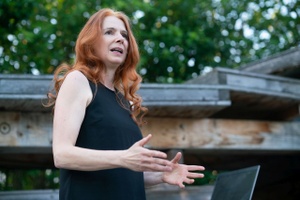Hedda Zinner (1904–1994). Wiederentdeckung einer politischen Schriftstellerin
In the organizer's words:
Reading, lecture, discussion
With Hanni Lorenz, Elke Bredereck, Jenny Erpenbeck, John Erpenbeck and Annett Gröschner
Early texts
Hanni Lorenz reads
Hedda Zinner's early texts from around 1930 are dedicated to current topics such as mass unemployment and the hunger crisis. These are socially critical, explicitly political poems, short stories and reportages that appeared in newspapers and magazines such as Rote Fahne, Arbeiter-Illustrierte-Zeitung (AIZ) and Weg der Frau. When a volume of "Miscellaneous Writings" was being prepared for the edition of Hedda Zinner's works in the mid-1980s, a selection of her early texts was also compiled. It was no longer possible to print this volume during the period of upheaval in 1989/90. The reading on the occasion of the 30th anniversary of her death is based on the typescript of this unpublished volume prepared by Simone Barck.
Overview of the work
Lecture by Elke Bredereck
Hedda Zinner's work includes numerous novels, about a dozen plays and libretti, as well as radio plays, television plays, poetry, translations of poems, short stories and memoirs. Recurring themes in her texts include the situation of women, Jewish life, anti-fascism and Stalinism. Despite her fundamental loyalty to the GDR, not all of her works were received positively and some adaptations for theater and film were even prevented.
Literary references and memories
Jenny Erpenbeck and John Erpenbeck in conversation with Annett Gröschner
What impression did Hedda Zinner make as a writer on her son, the scientist and writer John Erpenbeck, and her granddaughter, the writer Jenny Erpenbeck? John Erpenbeck has been writing literary works since the 1960s, including poems, short stories and several novels. An important theme in his writing is the relationship between art and science. What role does the examination of his mother's work play for him? Jenny Erpenbeck's early stories already feature literary figures who bear the traits of her grandmother. The intertextual reference becomes even clearer in the novel "Heimsuchung" and finally in the novel "Aller Tage Abend", in which scenes from her grandmother's work once again become material that she overwrites with her own themes. What role does the literary confrontation with Hedda Zinner play for Jenny Erpenbeck? How has her view of Hedda Zinner's thinking, political stance and living conditions changed in the course of her own writing? These and other questions will be the subject of a discussion with the writer Annett Gröschner, who will talk about her reading of Hedda Zinner.












